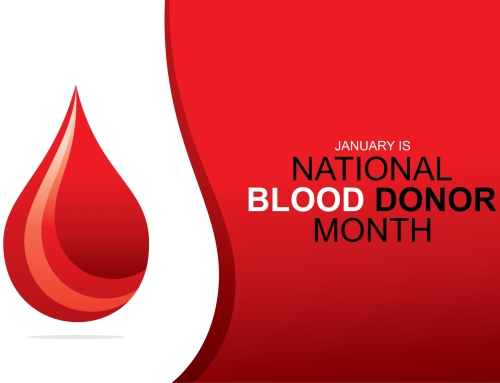Updated September 10, 2020
We are living in a time of uncertainty with the COVID-19 pandemic, which can lead to stress, fear, depression, and anxiety. We may feel overwhelmed at times and bored at other times. We may be at a loss for how to cope with social distancing, not seeing friends and family, and the possibility of getting sick.
If you are a dialysis patient, receiving treatment either in-center or at home, your facility social worker is a great resource for you. Or, if you are a transplant patient, you can talk to your transplant social worker for support. You have people who can help you through this challenging time, either at your dialysis center or by phone.
We have gathered some resources to help relieve your stress and anxiety. Some of the resources suggest ways you can feel in-control of what you do and maintain a routine. Others provide ideas for activities you can do, suggestions to help your children cope, online support group information, ways to find joy, and ways to cope with what is going on. This is not intended to be a complete list, nor is it a substitute for counseling or professional help. We do not specifically endorse any one resource, but we thought this might give you a starting point. And, we will continue to add to this list of resources on our web site at https://www.dpcedcenter.org.
Some of these resources are also available in Spanish and some offer the language conversion option. Additional Spanish resources can be downloaded at the end of the article.
Mental Health Resources for COVID-19
Coping with Chronic Illness During COVID-19: How to Live Well in the Context of Stress
This article provides psychoeducation on the connection between stress, chronic illness, and COVID-19, tips for managing anxiety related to these stressors, and resources for further support.
https://www.dpcedcenter.org/news-events/news/coping-with-chronic-illness-during-covid-19-how-to-live-well-in-the-context-of-stress/
Supporting Your Health and Wellbeing Before, During, and After Kidney Transplant
Preparing for and receiving a kidney transplant, especially during the COVID-19 pandemic, can be an uncertain and overwhelming process. This article discusses tips to promote positive mental and physical health for yourself or your loved ones.
https://www.dpcedcenter.org/news-events/news/supporting-your-health-and-wellbeing-before-during-and-after-kidney-transplant/
APA COVID-19 Information and Resources
The American Psychological Association (APA) is continually updating a list of resources for psychologists, health care workers, and the public. There are videos and podcasts as well as resources by topics including Stress, Anxiety, and Grief, Social Distancing and Isolation, Self-Care, Parenting and Caregivers, and more. https://www.apa.org/topics/covid-19
Seven Tips for Managing Your Mental Health During the COVID-19 Pandemic
Tips to stay mentally healthy that include staying informed, staying connected to others, and helping others…https://www.ncoa.org/blog/7-tips-for-managing-your-mental-health-during-the-covid-19-pandemic/
Stress and Coping
The outbreak of coronavirus disease 2019 (COVID-19) may be stressful for people. Fear and anxiety about a disease can be overwhelming and cause strong emotions in adults and children. Coping with stress will make you, the people you care about, and your community stronger… https://www.cdc.gov/coronavirus/2019-ncov/daily-life-coping/managing-stress-anxiety.html
Social Distancing, Quarantine, and Isolation
Limiting face-to-face contact with others is the best way to reduce the spread of coronavirus disease 2019 (COVID-19). https://www.cdc.gov/coronavirus/2019-ncov/prevent-getting-sick/social-distancing.html
Disaster Distress Helpline
SAMHSA’s Disaster Distress Helpline provides 24/7, 365-day-a-year crisis counseling and support to people experiencing emotional distress related to natural or human-caused disasters. https://www.samhsa.gov/find-help/disaster-distress-helpline
COVID-19 Resource and Information Guide
This Guide from NAMI provides information on a variety of topics including suggestions on how to handle stress and anxiety, support groups, assistance with financial resources, assistance with medications, etc. https://www.nami.org/covid-19-guide
COVID-19 Support Program for People for Chronic Disease Patients and their Families
The Global Healthy Living Foundation (GHLF) has developed a support program for patients and their families to gather updated information, community support and other resources. https://www.ghlf.org/coronavirus-patient-support/
Tips for Social Distancing, Quarantine, And Isolation During an Infectious Disease Outbreak https://www.samhsa.gov/sites/default/files/tips-social-distancing-quarantine-isolation-031620.pdf
Finding Joy During COVID-19
Steve Wilson shares ways to add positives to your life every day as well as suggestions on how to take breaks from the stress of our current times. https://youtu.be/N1e9gWVk6eI
Medicare and Your Mental Health Benefits
This booklet from the Centers for Medicare & Medicaid Services (CMS) contains information about the mental health services available to Medicare patients. https://www.medicare.gov/Pubs/pdf/10184-Medicare-and-Your-Mental-Health-Benefits.pdf
The Family Caregiver Alliance
This site has a number of tip sheets and resources for caregivers, the importance of self-care for the caregiver. https://www.caregiver.org/coronavirus-covid-19-resources-and-articles-family-caregivers
Resources for Parents and Children
Advice for Caregivers of Children with Disabilities in the Era of COVID-19
Parents and caregivers of children and youth with disabilities are facing unique challenges as a result of COVID-19. For example, while social distancing has been widely promoted as the best strategy to avoid transmission, that advice may not be realistic for people who care for children and youth with disabilities who may require therapy or assistance with daily tasks. https://www.apa.org/research/action/children-disabilities-covid-19
Just for Kids – A Comic Exploring the New Coronavirus
Kids, this comic is for you. It’s based on a radio story that NPR education reporter Cory Turner did. He asked some experts what kids might want to know about the new coronavirus. https://www.npr.org/sections/goatsandsoda/2020/02/28/809580453/just-for-kids-a-comic-exploring-the-new-coronavirus
Kids Booklet – My Name is Coronavirus
This short booklet, available in multiple languages, can be printed to help decrease anxiety and reassure children, primarily under the age of 7, regarding the COVID-19. They can draw and color on the pages. https://www.mindheart.co/descargables
Resources for Parents and Caregivers: COVID-19
This list provides a variety of resources for parents to help their children understand COVID-19. https://mhttcnetwork.org/centers/mountain-plains-mhttc/resources-parents-and-caregivers-covid-19
Coronavirus Resources and Tips for Parents, Children, & Others
Tips for Staying Connected – Provides clear, concrete tips for physically distancing while staying emotionally and socially connected. https://preventchildabuse.org/resources/coronavirus-tips-resources-for-parents-children-educators-others/
Helping Homebound Children During the COVID-19 Outbreak
Provides information on how to support the family structure and how to communicate openly. https://www.cstsonline.org/assets/media/documents/CSTS_FS_Helping_Homebound_Children_during_COVID19_Outbreak.pdf
When Family Members are Hospitalized Due to COVID-19 https://www.cstsonline.org/assets/media/documents/CSTS_FS_When_Family_Members_are_Hospitalized_due_to_COVID19.pdf
Finding the Right Words to Talk with Children and Teens about COVID-19 https://www.cstsonline.org/assets/media/documents/CSTS_FS_Finding_Right_Words_Talk_Children_Teens_Coronavirus.pdf
Tips for Coping When Quarantined with COVID-19 Family Members https://www.cstsonline.org/assets/media/documents/CSTS_FS_Families_%20Quarantined_wAtHome_COVID19_Patients.pdf




